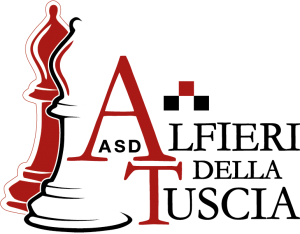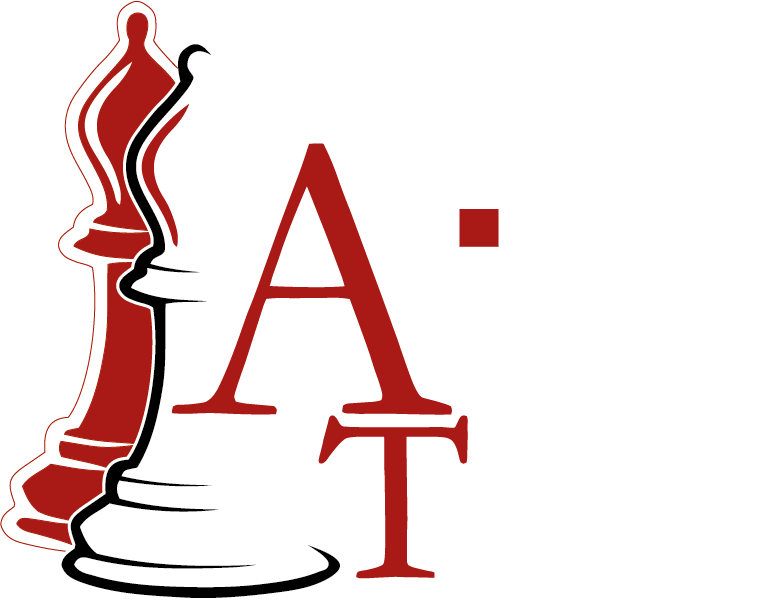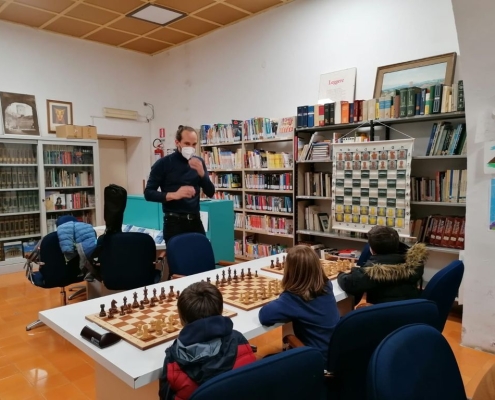 https://www.alfieridellatuscia.it/wp-content/uploads/2022/03/foto-thomas-2.jpeg
768
1023
admin-andy
https://www.alfieridellatuscia.it/wp-content/uploads/2021/07/logo-trasp-300x234.png
admin-andy2022-03-24 19:46:242023-05-31 10:14:33Intermediate course by Master Candidate Thomas Ulrich
https://www.alfieridellatuscia.it/wp-content/uploads/2022/03/foto-thomas-2.jpeg
768
1023
admin-andy
https://www.alfieridellatuscia.it/wp-content/uploads/2021/07/logo-trasp-300x234.png
admin-andy2022-03-24 19:46:242023-05-31 10:14:33Intermediate course by Master Candidate Thomas Ulrich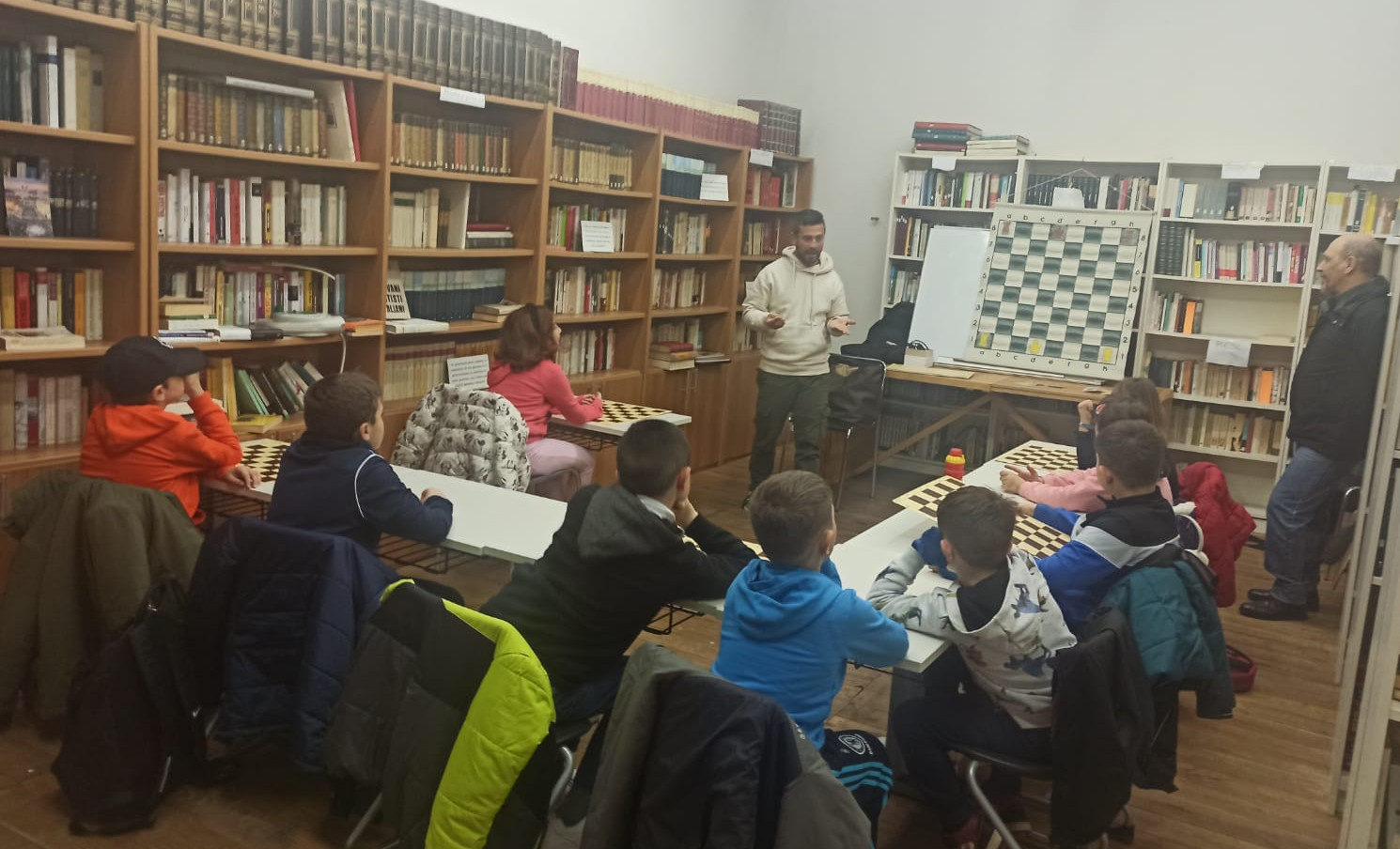

Teaching
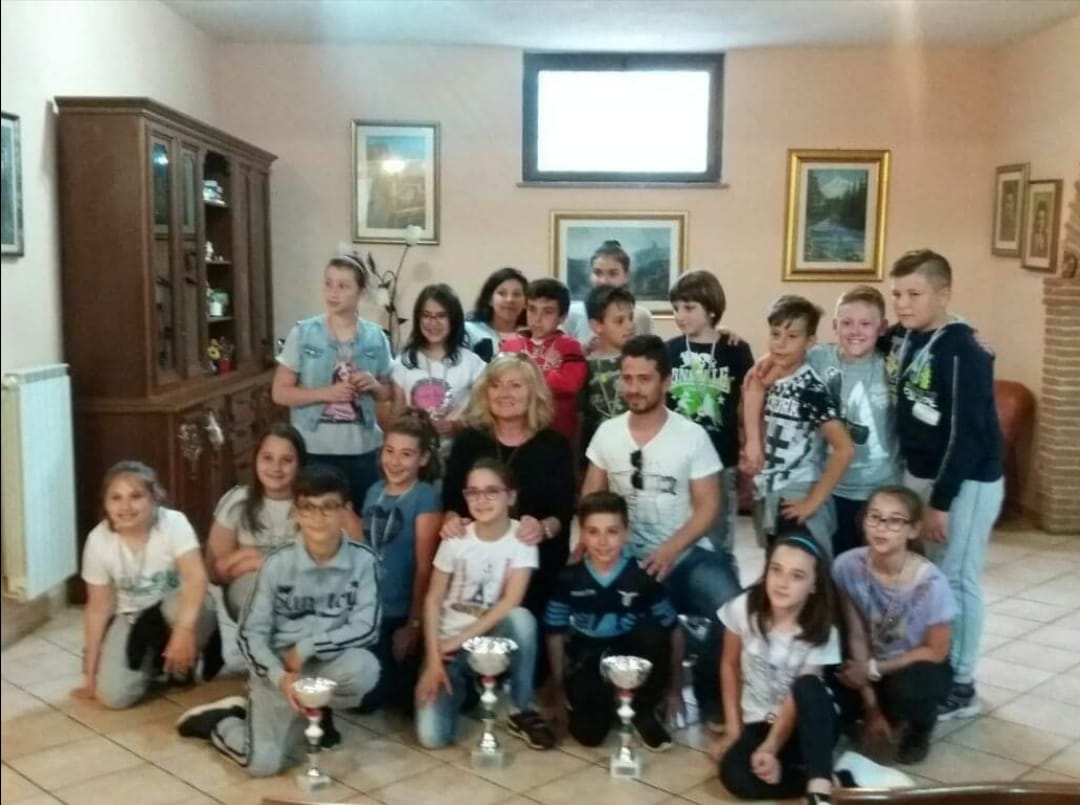
Chess at school
In today's fast-paced and tumultuous environment, deficits in the ability to pay attention and concentrate are increasingly common among young people. More and more things are being done, and faster and faster. Thinking before moving, a necessity that characterises the game of chess, has become an unusual gesture in today's context. Chess, the sport of the mind par excellence, is at the same time a game, a science, an art and a universal language capable of uniting the world and generations, but with it one can do this and much more.
Chess serves as an ideal model for the correct development of cognitive and metacognitive skills and in its playful aspect allows this process to be conducted in a natural and dynamic manner. These characteristics contribute to making the game of chess a sporting activity in which pupils can express their aggression within a framework with well-defined rules and limits, and because of its socialising dimension the game stimulates social integration. For these aspects, the introduction of a chess-themed course in the school can be a contribution to the prevention of school discomfort and bullying.
The 'Chess at School' educational project is aimed at primary and secondary schools in Tuscia.
Chess at school
In today's fast-paced and tumultuous environment, deficits in the ability to pay attention and concentrate are increasingly common among young people. More and more things are being done, and faster and faster. Thinking before moving, a necessity that characterises the game of chess, has become an unusual gesture in today's context. Chess, the sport of the mind par excellence, is at the same time a game, a science, an art and a universal language capable of uniting the world and generations, but with it one can do this and much more.
Chess serves as an ideal model for the correct development of cognitive and metacognitive skills and in its playful aspect allows this process to be conducted in a natural and dynamic manner. These characteristics contribute to making the game of chess a sporting activity in which pupils can express their aggression within a framework with well-defined rules and limits, and because of its socialising dimension the game stimulates social integration. For these aspects, the introduction of a chess-themed course in the school can be a contribution to the prevention of school discomfort and bullying.
The 'Chess at School' educational project is aimed at primary and secondary schools in Tuscia.
Think before you move
Incorporating the practice of chess at school can help to address the issues highlighted because it allows one to
- educating in rules and a sense of social and community;
- stimulate responsible thinking and free expression as a value in itself, beyond the acquired chess skills;
- educating for the pleasure of mental commitment;
- foster respect for others, get used to accepting and coping with everyday difficulties;
- fostering peer relationships in the group for socialisation and personal enrichment;
- Increasing the critical and self-critical sense (symbolic evaluation and self-assessment);
- Gradually develop the skills of analysis, evaluation, synthesis and organisation of personal activities and interests;
- create educational and value continuity between school and family (parents, grandparents, siblings, relatives);
- promote the integration of disability and different ethnicities.
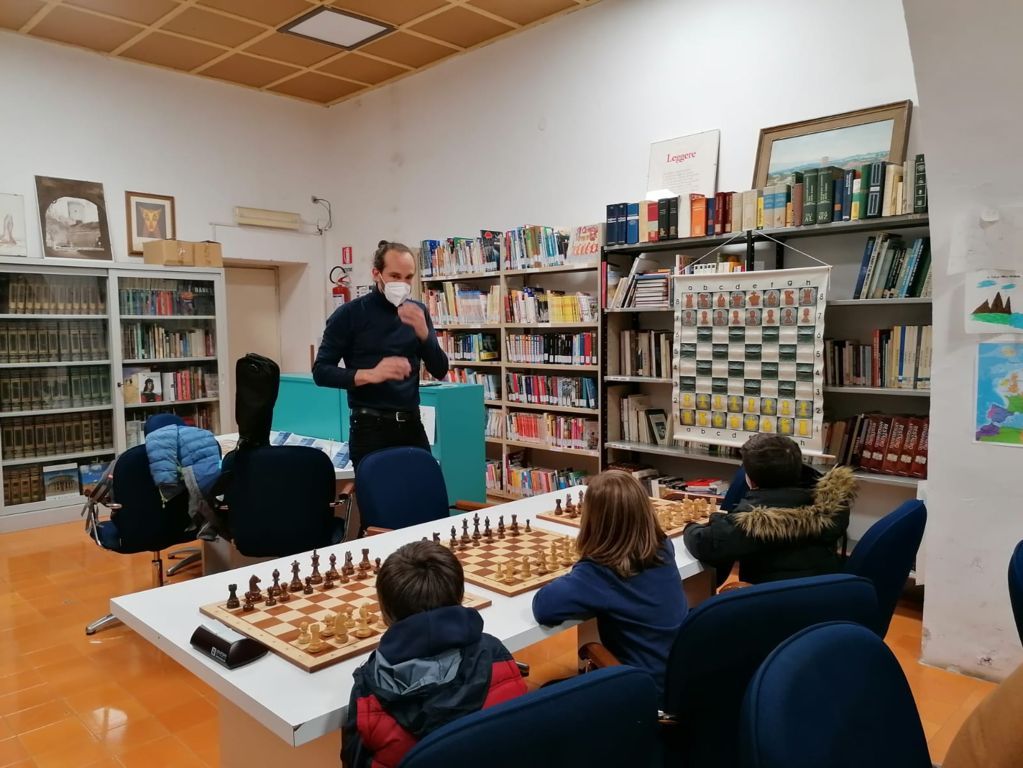
Think before you move
Incorporating the practice of chess at school can help to address the issues highlighted because it allows one to
- educating in rules and a sense of social and community;
- stimulate responsible thinking and free expression as a value in itself, beyond the acquired chess skills;
- educating for the pleasure of mental commitment;
- foster respect for others, get used to accepting and coping with everyday difficulties;
- fostering peer relationships in the group for socialisation and personal enrichment;
- Increasing the critical and self-critical sense (symbolic evaluation and self-assessment);
- Gradually develop the skills of analysis, evaluation, synthesis and organisation of personal activities and interests;
- create educational and value continuity between school and family (parents, grandparents, siblings, relatives);
- promote the integration of disability and different ethnicities.
Growing up with chess
Growing up with chess
Individual and group courses
The club periodically organises group chess courses usable for members or thematic courses often usable online.
For special needs or for competitive purposes, individual courses can be organised or a real one-to-one tutorship with a customised learning path.
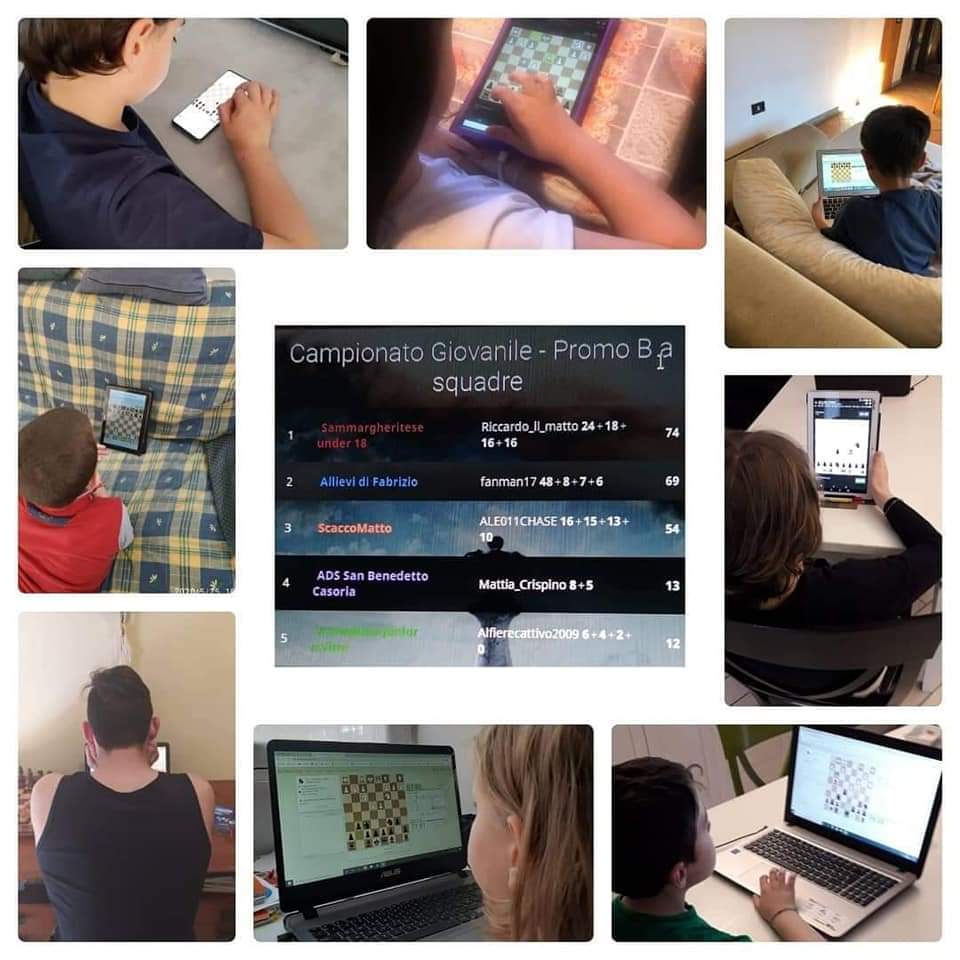
 https://www.alfieridellatuscia.it/wp-content/uploads/2022/03/foto-thomas-2.jpeg
768
1023
admin-andy
https://www.alfieridellatuscia.it/wp-content/uploads/2021/07/logo-trasp-300x234.png
admin-andy2022-03-24 19:46:242023-05-31 10:14:33Intermediate course by Master Candidate Thomas Ulrich
https://www.alfieridellatuscia.it/wp-content/uploads/2022/03/foto-thomas-2.jpeg
768
1023
admin-andy
https://www.alfieridellatuscia.it/wp-content/uploads/2021/07/logo-trasp-300x234.png
admin-andy2022-03-24 19:46:242023-05-31 10:14:33Intermediate course by Master Candidate Thomas Ulrich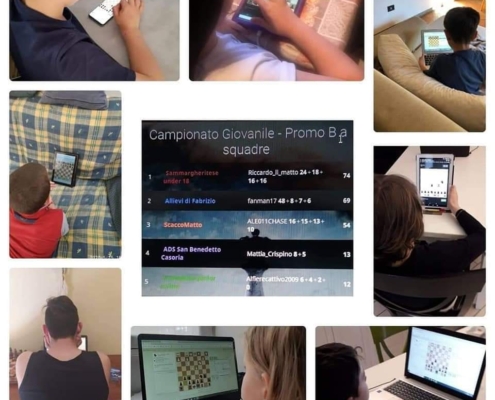
Checkmate at COVID
 https://www.alfieridellatuscia.it/wp-content/uploads/2022/03/foto-thomas-2.jpeg
768
1023
admin-andy
https://www.alfieridellatuscia.it/wp-content/uploads/2021/07/logo-trasp-300x234.png
admin-andy2021-05-02 17:59:092024-04-19 17:17:30Beginner and Intermediate Course
https://www.alfieridellatuscia.it/wp-content/uploads/2022/03/foto-thomas-2.jpeg
768
1023
admin-andy
https://www.alfieridellatuscia.it/wp-content/uploads/2021/07/logo-trasp-300x234.png
admin-andy2021-05-02 17:59:092024-04-19 17:17:30Beginner and Intermediate CourseUseful links
Other links
The seat of the circle (Library Nepi)
Opening hours of the Club
Wednesday from 16:30 to 19:30
Free play and learning activities
Tel: 329-8133458
